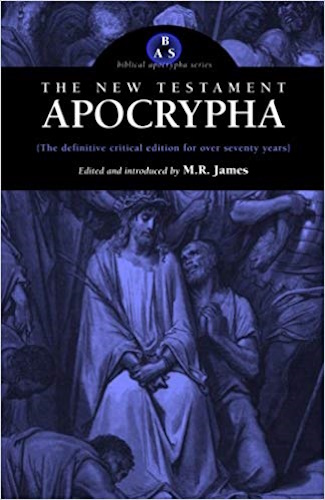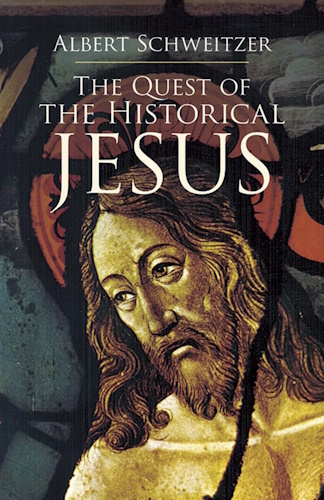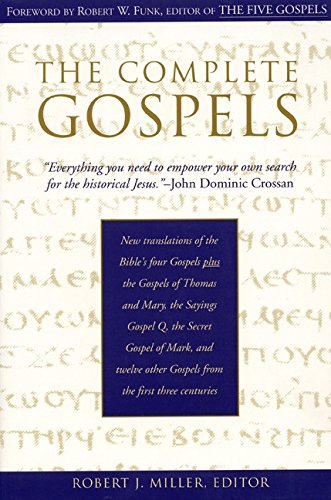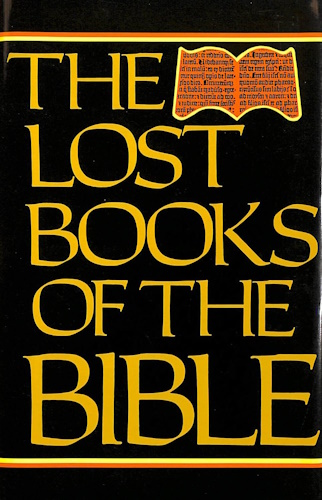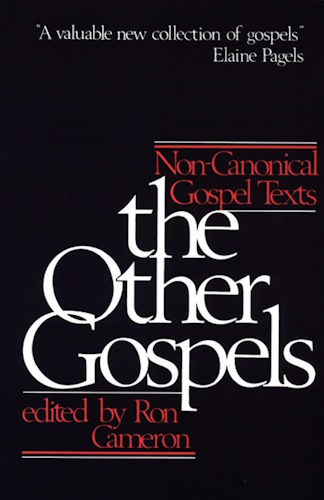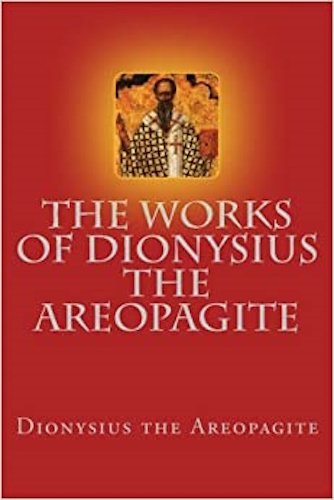
The works of Dionysius the Areopagite
On Divine Names
Caput VII
Concerning Wisdom, Mind, Reason, Truth, faith.
SECTION I.
COME then, if you please, let us sing the good and eternal Life, both as wise, and as wisdom's self; yea, rather, as sustaining all wisdom, and being superior to all wisdom and understanding. For, not only is Almighty God superfull of wisdom, and of His understanding there is no number, but He is fixed above all reason and mind and wisdom. And, when the truly divine man, the common sun of us, and of our leader, had thought this out, in a sense above nature, he says, "the foolishness of God is wiser than men," (meaning) not only that all human intelligence is a sort of error, when tried by the stability and durability of the Divine and most perfect conceptions, but that it is even usual with the theologians to deny, with respect to God, things of privation, in an opposite sense. Thus, the Oracles declare, the All-luminous Light, invisible, and Him, Who is often sung, and of many names, to be unutterable and without name, and Him, Who is present to all, and is found of all, to be incomprehensible and past finding out. In this very way, even now, the
page 87
Divine Apostle is said to have celebrated as "foolishness of God," that which appears unexpected and absurd in it, (but) which leads to the truth which is unutterable and before all reason. But, as I elsewhere said, by taking the things above us, in a sense familiar to ourselves, and by being entangled by what is congenial to sensible perceptions, and by comparing things Divine with our own conditions, we are led astray through following the Divine and mystical reason after a mere appearance. We ought to know that our mind has the power for thought, through which it views things intellectual, but that the union through which it is brought into contact with things beyond itself surpasses the nature of the mind. We must then contemplate things Divine, after this Union, not after ourselves, but by our whole selves, standing out of our whole selves, and becoming wholly of God. For it is better to be of God, and not of ourselves. For thus things Divine will, be given to those who become dear to God. Celebrating then, in a superlative sense, this, the irrational and mindless and foolish Wisdom, we affirm that It is Cause of all mind and reason, and all wisdom and understanding; and of It is every counsel, and from It every knowledge and understanding; and in It all the treasures of wisdom and knowledge are hidden. For, agreeably to the things already spoken, the super-wise, and all-wise Cause is a mainstay48 even of the self-existing Wisdom, both the universal and the individual.
SECTION II.
From It the contemplated and contemplating powers of the angelic Minds have their simple and blessed conceptions; collecting their divine knowledge, not in portions, or from portions, or sensible perceptions, or detailed reasonings, or arguing from something common to these things, but purified from everything material and multitudinous, they contemplate the conceptions of Divine things intuitively, immaterially and uniformly, and they have their intellectual power and energy resplendent with the unmixed and undefiled purity, and see at a glance the Divine conceptions indivisibly and immaterially, and are by the Godlike One moulded, as attainable by reason of the Divine Wisdom, to the Divine and Super-wise Mind and Reason. And souls have their reasoning power, investigating the truth of things by detailed steps and rotation, and through their divided and manifold variety falling short of the single minds, but, by the collection of many towards the One, deemed worthy, even of conceptions equal to the angels, so far as is proper and attainable to souls. But, even as regards the sensible perceptions themselves, one would not miss the mark, if one called them an echo of wisdom. Yet, even the mind of demons, qua mind, is from It; but so far as a mind is irrational, not knowing, and not wishing to attain what it aspires to, we must call it more properly a declension from wisdom. But, since the Divine Wisdom is called source, and cause, and mainstay,
page 89
and completion and guard, and term of wisdom itself, and of every kind, and of every mind and reason, and every sensible perception, how then is Almighty God Himself, the super-wise, celebrated as Mind and Reason and Knowledge? For, how will He conceive any of the objects of intelligence, seeing He has not intellectual operations? or how will He know the objects of sense, seeing He is fixed above all sensible perception? Yet the Oracles affirm that He knoweth all things, and that nothing escapes the Divine Knowledge. But, as I have been accustomed to say many times before, we must contemplate things Divine, in a manner becoming God. For the mindless, and the insensible, we must attribute to God, by excess—not by defect, just as we attribute the irrational to Him Who is above reason; and imperfection, to the Super-perfect, and Pre-perfect; and the impalpable, and invisible gloom, to the light which is inaccessible on account of excess of the visible light. So the Divine Mind comprehends all things, by His knowledge surpassing all, having anticipated within Himself the knowledge of all, as beseems the Cause of all; before angels came to being, knowing and producing angels; and knowing all the rest from within; and, so to speak, from the Source Itself, and by bringing into being. And, this, I think, the sacred text teaches, when it says, "He, knowing all things, before their birth." For, not as learning existing things from existing things, does the Divine Mind know, but from Itself, and in Itself, as Cause, it pre-holds and pre-comprehends
page 90
the notion and knowledge, and essence of all things; not approaching each several thing according to its kind, but knowing and containing all things, within one grasp of the Cause; just as the light, as cause, presupposes in itself the notion of darkness, not knowing the darkness otherwise than from the light. The Divine Wisdom then, by knowing Itself, will know all things; things material, immaterially, and things divisible, indivisibly, and things many, uniformly; both knowing and producing all. things by Itself, the One. For even, if as becomes one Cause, Almighty God distributes being to all things that be, as beseems the self-same, unique Cause, He will know all things, as being from Himself, and pre-established in Himself, and not from things that be will He receive the knowledge of them; but even to each of them, He will be provider of the knowledge of themselves, and of the mutual knowledge of each other. Almighty God, then, has not one knowledge, that of Himself, peculiar to Himself, and another, which embraces in common all things existing; for the very Cause of all things, by knowing Itself, will hardly, I presume, be ignorant of the things from Itself, and of which It is Cause. In this way then, Almighty God knows existing things, not by a knowledge of things existing, but by that of Himself. For the Oracles affirm, that the angels also know things on the earth, not as knowing them by sensible perceptions, although objects of sensible perception, but by a proper power and nature of the Godlike Mind.
SECTION III.
In addition to these things, we must examine how we know God, Who is neither an object of intellectual nor of sensible perception, nor is absolutely anything of things existing. Never, then, is it true to say, that we know God; not from His own nature (for that is unknown, and surpasses all reason and mind), but, from the ordering of all existing things, as projected from Himself, and containing a sort of images and similitudes of His Divine exemplars, we ascend, as far as we have power, to that which is beyond all, by method and order in the abstraction and pre-eminence of all, and in the Cause of all. Wherefore, Almighty God is known even in all, and apart from all. And through knowledge, Almighty God is known, and through agnosia. And there is, of Him, both conception, and expression, and science, and contact, and sensible perception, and opinion, and imagination, and name, and all the rest. And He is neither conceived, nor expressed, nor named. And He is not any of existing things, nor is He known in any one of existing things. And He is all in all, and nothing in none. And He is known to all, from all, and to none from none. For, we both say these things correctly concerning God, and He is celebrated from all existing things, according to the analogy of all things, of which He is Cause. And there is, further, the most Divine Knowledge of Almighty God, which is known, through not knowing (αγνοσια) during the union above mind; when the mind, having stood apart from all existing
page 92
things, then having dismissed also itself, has been made one with the super-luminous rays, thence and there being illuminated by the unsearchable depth of wisdom. Yet, even from all things, as I said, we may know It, for It is, according to the sacred text, the Cause formative of all, and ever harmonizing all, and (Cause) of the indissoluble adaptation and order of all, and ever uniting49 the ends of the former to the beginnings of those that follow, and beautifying the one symphony and harmony of the whole.
SECTION IV.
But Almighty God is celebrated in the holy Oracles as "Logos"; not only because He is provider of reason and mind and wisdom, but because He anticipated the causes of all, solitarily in Himself, and because He passes through all, as the Oracles say, even to the end of all things; and even more than these, because the Divine Word surpasses every simplicity, and is set free from all, as the Superessential. This "Logos "is the simple and really existing truth, around which, as a pure and unerring knowledge of the whole, the Divine Faith is—the enduring foundation of the believers—which establishes them in the truth, and the truth in them, by an unchangeable identity, they having the pure knowledge of the truth of the things believed. For, if knowledge unites the knowing and the known, but ignorance is ever a cause to the ignorant person of
page 93
change, and of separation from himself, nothing will move one who has believed in the truth, according to the sacred Logos, from true Faith's Sanctuary upon which he will have the steadfastness of his unmoved, unchangeable identity. For, well does he know, who has been united to the Truth, that it is well with him although the multitude may admonish him as "wandering." For it probably escapes them, that he is wandering from error to the truth, through the veritable faith. But, he truly knows himself, not, as they say, mad, but as liberated from the unstable and variable course around the manifold variety of error, through the simple, and ever the same, and similar truth. Thus then the early leaders50 of our Divine Theosophy are dying every day, on behalf of truth, testifying as is natural, both by every word and deed, to the one knowledge of the truth of the Christians, that it is of all, both more simple and more Divine, yea rather, that it is the sole true and one and simple knowledge of God.
48 See Caput XI., Section VI.
49 True theory of evolution.
50 First persecution of Nero.
![]()
![]()
-
Urantia Book, 44:0.11 - The Celestial Artisans
Never in your long ascendancy will you lose the power to recognize your associates of former existences. Always, as you ascend inward in the scale of life, will you retain the ability to recognize and fraternize with the fellow beings of your previous and lower levels of experience. Each new translation or resurrection will add one more group of spirit beings to your vision range without in the least depriving you of the ability to recognize your friends and fellows of former estates.
-
Princess Bride 1987 Wallace Shawn (Vizzini) and Mandy Patinkin (Inigo Montoya)
Vizzini: HE DIDN'T FALL? INCONCEIVABLE.
Inigo Montoya: You keep using that word. I do not think it means what you think it means. -
Urantia Book, 117:4.14 - The Finite God
And here is mystery: The more closely man approaches God through love, the greater the reality -- actuality -- of that man. The more man withdraws from God, the more nearly he approaches nonreality -- cessation of existence. When man consecrates his will to the doing of the Father's will, when man gives God all that he has, then does God make that man more than he is.
-
Urantia Book, 167:7.4 - The Talk About Angels
"And do you not remember that I said to you once before that, if you had your spiritual eyes anointed, you would then see the heavens opened and behold the angels of God ascending and descending? It is by the ministry of the angels that one world may be kept in touch with other worlds, for have I not repeatedly told you that I have other sheep not of this fold?"
-
Urantia Book, Foreword - 0:12.12 - The Trinities
But we know that there dwells within the human mind a fragment of God, and that there sojourns with the human soul the Spirit of Truth; and we further know that these spirit forces conspire to enable material man to grasp the reality of spiritual values and to comprehend the philosophy of universe meanings. But even more certainly we know that these spirits of the Divine Presence are able to assist man in the spiritual appropriation of all truth contributory to the enhancement of the ever-progressing reality of personal religious experience—God-consciousness.
-
Urantia Book, 1:4.3 - The Mystery Of God
When you are through down here, when your course has been run in temporary form on earth, when your trial trip in the flesh is finished, when the dust that composes the mortal tabernacle "returns to the earth whence it came"; then, it is revealed, the indwelling "Spirit shall return to God who gave it." There sojourns within each moral being of this planet a fragment of God, a part and parcel of divinity. It is not yet yours by right of possession, but it is designedly intended to be one with you if you survive the mortal existence.
-
Urantia Book, 1:4.1 - The Mystery Of God
And the greatest of all the unfathomable mysteries of God is the phenomenon of the divine indwelling of mortal minds. The manner in which the Universal Father sojourns with the creatures of time is the most profound of all universe mysteries; the divine presence in the mind of man is the mystery of mysteries.
-
Urantia Book, 1:4.6 - The Mystery Of God
To every spirit being and to every mortal creature in every sphere and on every world of the universe of universes, the Universal Father reveals all of his gracious and divine self that can be discerned or comprehended by such spirit beings and by such mortal creatures. God is no respecter of persons, either spiritual or material. The divine presence which any child of the universe enjoys at any given moment is limited only by the capacity of such a creature to receive and to discern the spirit actualities of the supermaterial world.
-
Urantia Book, 11:0.1 - The Eternal Isle Of Paradise
Paradise is the eternal center of the universe of universes and the abiding place of the Universal Father, the Eternal Son, the Infinite Spirit, and their divine co-ordinates and associates. This central Isle is the most gigantic organized body of cosmic reality in all the master universe. Paradise is a material sphere as well as a spiritual abode. All of the intelligent creation of the Universal Father is domiciled on material abodes; hence must the absolute controlling center also be material, literal. And again it should be reiterated that spirit things and spiritual beings are real.
-
Urantia Book, 50:6.4 - Planetary Culture
Culture presupposes quality of mind; culture cannot be enhanced unless mind is elevated. Superior intellect will seek a noble culture and find some way to attain such a goal. Inferior minds will spurn the highest culture even when presented to them ready-made.
-
Urantia Book, 54:1.6 - True And False Liberty
True liberty is the associate of genuine self-respect; false liberty is the consort of self-admiration. True liberty is the fruit of self-control; false liberty, the assumption of self-assertion. Self-control leads to altruistic service; self-admiration tends towards the exploitation of others for the selfish aggrandizement of such a mistaken individual as is willing to sacrifice righteous attainment for the sake of possessing unjust power over his fellow beings.
-
Urantia Book, 54:1.9 - True And False Liberty
How dare the self-willed creature encroach upon the rights of his fellows in the name of personal liberty when the Supreme Rulers of the universe stand back in merciful respect for these prerogatives of will and potentials of personality! No being, in the exercise of his supposed personal liberty, has a right to deprive any other being of those privileges of existence conferred by the Creators and duly respected by all their loyal associates, subordinates, and subjects.
-
Urantia Book, 54:1.8 - True And False Liberty
There is no error greater than that species of self-deception which leads intelligent beings to crave the exercise of power over other beings for the purpose of depriving these persons of their natural liberties. The golden rule of human fairness cries out against all such fraud, unfairness, selfishness, and unrighteousness.
